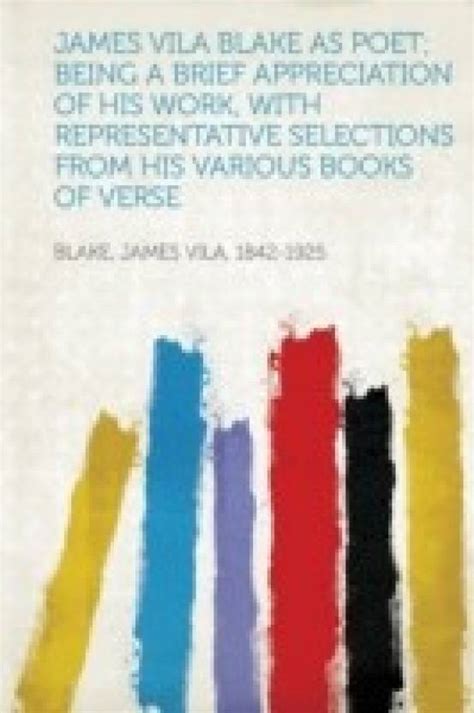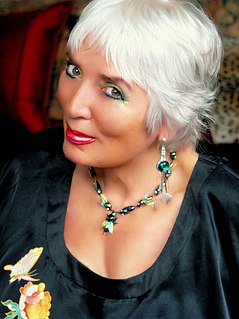A Quote by James Vila Blake
Like all passions, anger has degrees, ascending from slight vexation through deepening clouds to rage, and finally to fury, which is a black and horrible tempest. In its mid-region, where it is neither too little to be motive nor too furious to be ungovernable, it has usefulness. For all feeling is as fuel, and where there is none life has no fire, and then no flame of ascent.
Related Quotes
It is difficult to say which is the greatest evil--to have too violent passions, or to be wholly devoid of them. Controlled with firmness, guided by discretion, and hallowed by the imagination, the passions are the vivifiers and quickeners of our being. Without passion there can be no energy of character. Indeed, the passions are like fire, useful in a thousand ways, and dangerous only in one--through their excess.
If you see the fury and hear the howling of the tempest, or read of shipwrecks, think of the storm of human passions causing daily groans and disturbance in the hearts of men, wrecking the spiritual ship of the soul or the ship of human society; and pray fervently to the Lord that He may subdue the tempest of sins, as He once subdued the tempest at sea by His word, and that He may root our passions from our hearts, and re-establish in them unceasing tranquility.
Like most men, Jimmy Jim was neither all good nor all bad. It is just that when he was bad, gentler people saw in him a disturbing fury. People, a lot them, don't understand fury. They understand anger and even hatred, but fury is one of those old words that have gone out of style. Jimmy Jim Bundrum understood it. It rode his shoulder like a parrot.
Where there is Love and Wisdom, there is neither Fear nor Ignorance.
Where there is Patience and Humility, there is neither Anger nor Annoyance.
Where there is Poverty and Joy, there is neither Cupidity nor Avarice.
Where there is Peace and Contemplation, there is neither Care nor Restlessness.
Where there is the Fear of God to guard the dwelling, there no enemy can enter.
Where there is Mercy and Prudence, there is neither Excess nor Harshness.
A man who has not passed through the inferno of his passions has never overcome them. They then dwell in the house next door, and at any moment a flame may dart out and set fire to his own house. Whenever we give up, leave behind, and forget too much, there is always the danger that the things we have neglected will return with added force.
When you consider something like death, after which (there being no news flash to the contrary) we may well go out like a candle flame, then it probably doesn't matter if we try too hard, are awkward sometimes, care for one another too deeply, are excessively curious about nature, are too open to experience, enjoy a nonstop expense of the senses in an effort to know life intimately and lovingly.
Cry, the beloved country, for the unborn child that's the inheritor of our fear. Let him not love the earth too deeply. Let him not laugh too gladly when the water runs through his fingers, nor stand too silent when the setting sun makes red the veld with fire. Let him not be too moved when the birds of his land are singing. Nor give too much of his heart to a mountain or a valley. For fear will rob him if he gives too much.
At the still point of the turning world. Neither flesh nor fleshless; Neither from nor towards; at the still point, there the dance is, But neither arrest nor movement. And do not all it fixity, Where past and future are gathered. Neither movement from nor towards, Neither ascent nor decline. Except for the point, the still point, There would be no dance, and there is only the dance.
Anger should be especially kept down in punishing, because he who comes to punishment in wrath will never hold that middle course which lies between the too much and the too little. It is also true that it would be desirable that they who hold the office of Judges should be like the laws, which approach punishment not in a spirit of anger but in one of equity.



































